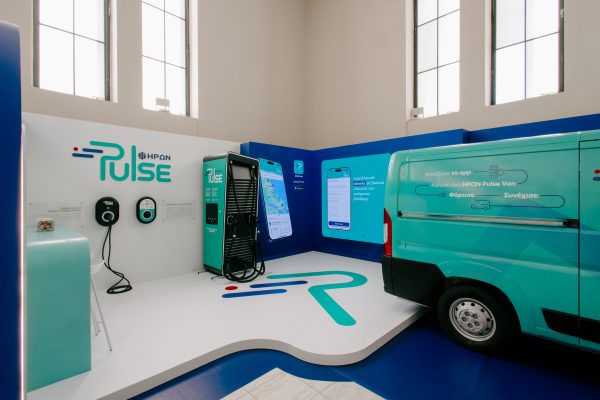
Greek patients are experiencing significant challenges in accessing the innovative pharmaceutical treatments they need, with just one out of five new pharmaceutical drugs available in the European Union and approved by the European Medicines Agency (EMA) reaching Greece, says In.gr.
Moreoever, even though some treatments have reached Greece, they are not accessible to everyone, according to a series of studies by the Hellenic Association of Pharmaceutical Companies (SFEE) and the European Federation of Pharmaceutical Industries and Associations (EFPIA), in collaboration with research firm IQVIA.
The studies investigate the waiting time for innovative treatments to reach Greece, the causes of delays, the availability of new medicines over the past decade, and the comparison of state participation in pharmaceutical expenditure among European countries and found that Greece spends 70% less on pharmaceuticals than the European average.
SFEE President Olympios Papadimitriou and General Manager Michalis Cheimonas emphasized that while funding needs to be increased, the Greek state needs to ensure equal, universal, and timely access to the new treatments that make it to Greece.
And funding and access must be matched with controls and digital tools to improve the investment performance of pharmaceuticals because, according to SFEE, the business environment for pharmaceutical companies in Greece is ‘unsustainable’ and less attractive for investment.
According to EFPIA’s study, Greece approves innovative pharmaceutical drugs faster than the European average. The average time for an innovative drug to become available in Greece is 587 days, which is 56 days faster than the European average.
However, despite availability from the first day of EMA approval, patient access remains limited.
Only 52% of reimbursed innovative drugs are fully available in Greece, with oncology drugs prioritized and combinations facing significant delays.
The main reasons for delays in Greece are the prolonged pricing and reimbursement processes and insufficient budget allocations for their distribution to the population.
Only one in five drugs approved in the last four years is reimbursed in Greece, with another 29% distributed and reimbursed through the Institute of Pharmaceutical Research and Technology (IFET) without their reimbursement being officially approved as not related request has ever been submitted.
Overall, the study showed that delays in the submission of applications in Western Europe are largely due to the requirements of the Health Technology Assessment process, whereas in Southern Europe, they are primarily attributed to a lack of financial viability, which affects commercial decisions regarding the release of these drugs in local markets.
Specifically for Greece, limited availability affects one in two new drugs, with the primary causes of delay being the lack of financial viability due to exorbitant mandatory rebates and clawbacks, the need for drugs to be evaluated and marketed in five out of eleven EU countries with assessment bodies, and the accessibility of available drugs depending on their distribution channel and the specifics of their approval process says In.gr.
Greece’s Funding Gap
Over the past decade, state funding for pharmaceutical care in Greece decreased by 14.9% while the average funding increase in Europe was 55.2%.
The funding shortfall severely impacts patient care, with per capita spending on medications in Greece significantly lower than in other European countries.
Specifically, the per capita spending on medications reaches 53 euros for hospital medications and 202 euros for outpatient medications in Greece.
Meanwhile in Southern Europe, the average per capita spending is 146 euros and 232 euros respectively, and in Western Europe, it rises to 178 euros and 370 euros, respectively.
Thus, patient coverage falls short by 64-70% compared to Southern and Western Europe for hospital pharmaceutical care and by 13-45% for outpatient pharmaceutical care, says In.gr.
Overall, the average per capita pharmaceutical expenditure both inside and outside hospitals reaches 255 euros, which is 32% below the Southern European average of 378 euros and 53% below the Western European average of 548 euros.
As a potential solution to the challenges faced by pharmaceutical companies in Greece, SFEE has proposed a multi-year cooperation memorandum between the state and the pharmaceutical industry to enhance predictability and transparency.
Source: tovima.com
Latest News

Economist: Greece Included in the Best Performing Economies in 2024
Meanwhile, Northern European countries disappoint, with sluggish performances from the United Kingdom and Germany.

EasyJet Expands Its Routes from Athens
The airline’s two new routes will be to London Luton and Alicante and they will commence in summer 2025.

Capital Link Forum Highlights Greece’s Economic Resurgence; Honors BoG Gov Stournaras
Capital Link Hellenic Leadership Award recipient, Bank of Greece Gov. Yannis Stournaras, an ex-FinMin, was lauded for his pivotal role during Greece’s economic recovery

Tourist Spending in Greece Up by 14%, Visa Card Analysis Shows
Greece’s capital Athens emerged as the most popular destination, recording a 17% increase in transactions with Visa cards, surpassing even the cosmopolitan island of Mykonos.

Inflation in Greece Unchanged at 2.4% in Nov. 2024
The general consumer price index (CPI) posted a 0.4% decrease in November compared to the previous month

2024 Christmas Holidays: Extended Shop Hours Schedule
The 2024 Christmas Holidays extended shop hours schedule commences on Thursday, December 12 and runs until the end of the year.

ELSTAT: Seasonally Adjusted Unemployment Down in October
The number of employed individuals reached 4,284,694, an increase of 67,723 compared to October 2023 (+1.6%) and 22,002 compared to September 2024 (+0.5%).

Greek PM’s Chief Economic Adviser Resigns
In the post on his Facebook page, Patelis did not disclose the reasons that led him to step down.

“Masdar Invests in the people of Greece and in the vision of TERNA ENERGY”
Four messages from the CEO of Masdar, the Arab renewable energy giant, after its acquisition of 70% of TERNA ENERGY

Lloyd’s List Greek Shipping Awards 2024: Honors for leading companies and personalities in the Greek shipping sector
20 awards presented at the 21st annual Lloyd's List Greek Shipping Awards










































 Αριθμός Πιστοποίησης Μ.Η.Τ.232433
Αριθμός Πιστοποίησης Μ.Η.Τ.232433